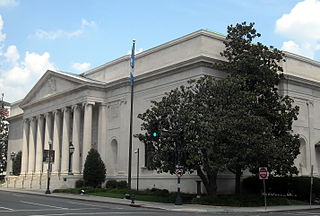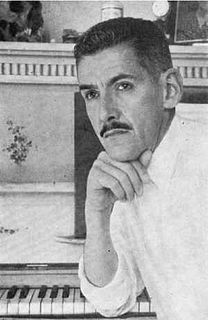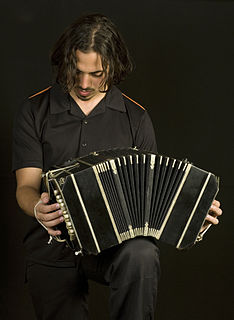Career
Mr. Zinger has conducted and played with orchestras, singers and chamber groups throughout the Americas and in Spain, Russia, Poland, Slovenia, Japan, Korea, South Africa, Germany and Norway.
In 2009, he accompanied Plácido Domingo singing tangos at Washington’s Constitution Hall, [1] narrated Piazzolla’s Pueblo Joven at Tokyo’s Opera City [2] (2008), played and conducted the Moscow première [3] of Piazzolla’s María de Buenos Aires (2006), and conducted the closing of Paquito D'Rivera's Carnegie Hall 50th Anniversary Concert (2005).

José Plácido Domingo Embil is a Spanish opera singer, conductor, and arts administrator. He has recorded over a hundred complete operas and is well known for his versatility, regularly performing in Italian, French, German, Spanish, English and Russian in the most prestigious opera houses in the world. Although primarily a lirico-spinto tenor for most of his career, especially popular for his Cavaradossi, Hoffmann, Don José, and Canio, he quickly moved into more dramatic roles, becoming the most acclaimed Otello of his generation. In the early 2010s, he transitioned from the tenor repertory into almost exclusively baritone parts, most notably Simon Boccanegra. He has performed 149 different roles.

DAR Constitution Hall is a concert hall located at 1776 D Street NW, near the White House in Washington, D.C. It was built in 1929 by the Daughters of the American Revolution to house its annual convention when membership delegations outgrew Memorial Continental Hall. Later, the two buildings were connected by a third structure housing the DAR Museum, administrative offices, and genealogical library. DAR Constitution Hall is still owned and operated by the National Society of Daughters of the American Revolution. It was designated a National Historic Landmark in 1985. It has been a major cultural center of the city since its construction, and houses its largest auditorium.
María de Buenos Aires is a tango opera with music by Ástor Piazzolla and libretto by Horacio Ferrer that premiered at the Sala Planeta in Buenos Aires on 8 May 1968.
In 1987, he was asked by Ástor Piazzolla to serve as musical director for the premiere production of Tango Apasionado at the Westbeth Theater Center. [4] Mr. Zinger also played piano in the production and on the Kip Hanrahan recording which followed on the American Clavé label (see Discography).
Kip Hanrahan is an American jazz music impresario, record producer and percussionist.
He tours and records frequently with the Nuevo Tango Zinger Septet (Valencia, Spain). His critically acclaimed CD's include Tango Apasionado with Ástor Piazzolla, Chamber Music from the South and the Grammy nominated The Clarinetist with Paquito D'Rivera and Gustavo Tavares, Las Puertas de la Mañana (songs of Carlos Guastavino), and two albums of Carlos Suriñach’s flamenco-infused music.

Paquito D'Rivera is a Cuban-born American saxophonist, clarinetist, and composer who plays and composes jazz and classical music.

Carlos Guastavino was one of the foremost Argentine composers of the 20th century. His production amounted to over 500 works, most of them songs for piano and voice, many still unpublished. His style was quite conservative, always tonal and lusciously romantic. His compositions were clearly influenced by Argentine folk music. His reputation was based almost entirely on his songs, and Guastavino has sometimes been called "the Schubert of the Pampas". Some of his songs, for example Pueblito, mi pueblo, La rosa y el sauce and Se equivocó la paloma, became national favorites. Unlike most other composers, at any time or place, Guastavino earned enough from his royalties and performing rights that he really had little need for other income.
Carlos Surinachi Wrokona was a Spanish-born composer and conductor.
He is considered the pre-eminent conductor of zarzuela in the U.S. [5] Since 2004, he has been the Musical Director of the Zarzuela Series [6] at the National Hispanic Cultural Center, directed by Salomé Martínez-Lutz in Albuquerque, NM.

The National Hispanic Cultural Center is an institution in Albuquerque, New Mexico dedicated to Hispanic culture, arts and humanities. The campus spans 20 acres and is located along the Rio Grande in Albuquerque, New Mexico, on Avenida César Chávez and 4th St. Now presenting 700 events a year, the NHCC is home to three theatres, an art museum, library, genealogy center, Spanish-language resource center, two restaurants and the largest concave fresco in North America.
As a sideline, Mr. Zinger has written for The New York Times, Opera News, Guitar Review and Classical Singer, and has lectured for the New York Philharmonic.
He has conducted the Costa Rica National Symphony, Simón Bolívar Orchestra (Venezuela), Maribor Philharmonic (Slovenia), Montevideo Philharmonic and Montevideo Pro Opera (Uruguay) and Bronx Arts Ensemble with Jazz greats Tito Puente, Dave Valentin, Néstor Torres and John Faddis. At New York's Town Hall, he conducted Piazzolla's María de Buenos Aires and Pueblo Joven (U.S. première), Ernesto Lecuona's María la O, Roig's Cecilia Valdés, Moreno Torroba’s Luisa Fernanda and Barbieri's El barberillo de Lavapiés . Other zarzuela credits: Spanish Repertory Theatre (1980–1994), Orlando Opera, Zarzuela Company Domingo-Embil (Mexico), International Zarzuela Festival (El Paso), Jarvis Conservatory (Napa), and Santa Barbara Grand Opera. Zinger's La Verbena de la Paloma (El Paso, '96) was seen nationally on PBS and his Luisa Fernanda (Napa, '97) was issued on CD and DVD.
As Musical Director of New York's Polish Theatre Institute, Mr. Zinger has conducted Polish operas, concerts and cabaret presentations throughout the U.S. and in five tours of Poland.














